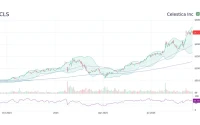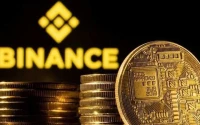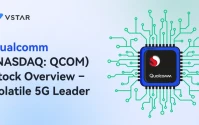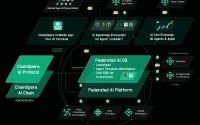OpenAI's $500 Billion Price Tag Isn't About Profit. It's About Something Else Entirely.
The market continues its relentless climb, with the S&P 500 and Nasdaq notching fresh records seemingly every other session. The narrative is simple: AI is the engine, and everything else is just noise. While Washington D.C. plays its familiar, tiresome game of chicken with a government shutdown, the market has fixated on a single, almost mythological number: $500 billion.
That is the new valuation of OpenAI, cemented by a secondary share sale that allowed employees to cash in on their equity. According to reporting from outlets like Bloomberg, the $6.6 billion transaction officially makes the creator of ChatGPT the most valuable private startup in the world, eclipsing SpaceX. The market's reaction has been euphoric, lifting chip stocks like Nvidia and AMD in its wake.
But let’s pause and look at the numbers with a cold eye. This is a valuation that, by any traditional metric, appears completely detached from reality. In the first half of 2025, OpenAI reportedly generated $4.3 billion in revenue while burning through $2.5 billion in cash. If we annualize those figures, we're looking at a company with a run rate of roughly $8.6 billion in revenue and a $5 billion annual loss. And for that, investors have assigned it a value greater than the GDP of most nations.
This is the part of the analysis where I find the conventional wisdom entirely insufficient. The usual talk of "growth potential" and "market disruption" feels inadequate, like using a ruler to measure the temperature. The valuation isn't a reflection of current or even near-term profitability. It's a price tag for something else entirely.
A Bet on Infrastructure, Not Software
My analysis suggests this isn't a valuation for a software company. It's a valuation for a foundational infrastructure provider that doesn't fully exist yet. Think of it less like valuing Microsoft in 1990 and more like trying to value the patent for the steam engine in 1770. You aren't buying a company that sells a product; you're buying the exclusive rights to the industrial revolution itself. The price becomes abstract because the potential is, theoretically, infinite.
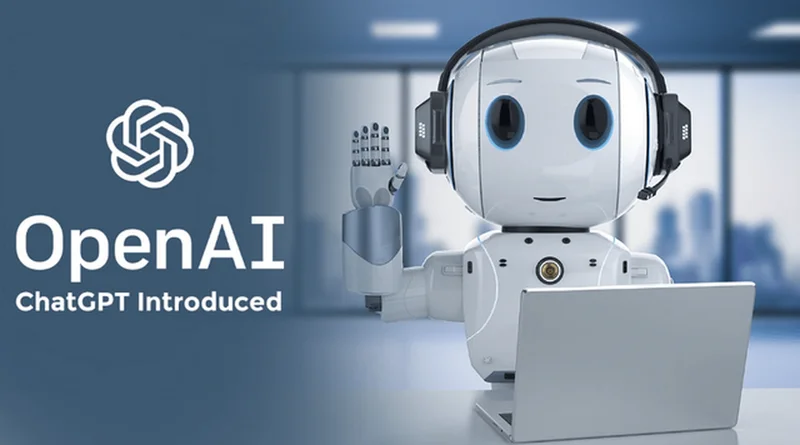
Consider the capital commitments. OpenAI has pledged to spend a staggering $300 billion on Oracle Cloud Services. Nvidia has announced plans for a $100 billion strategic infrastructure partnership. These aren't the balance sheet items of a typical startup. This is the spending profile of a nation-state building its electrical grid or highway system. The $500 billion figure isn't pricing in future ChatGPT subscription revenue; it's pricing in the possibility that OpenAI will become a gatekeeper to the next era of computation—a tollbooth operator on the superhighway of artificial intelligence.
Is this a guaranteed outcome? Of course not. What happens if the path to Artificial General Intelligence (AGI) is longer and more expensive than even these colossal figures suggest? How much of this valuation is simply a proxy for the strategic importance of its partnerships with Microsoft and Nvidia, which themselves are locked in a battle for dominance?
The mechanics of the recent sale also provide a clue. According to CNBC, OpenAI had authorized up to $10.3 billion in shares for the sale, but only about two-thirds of that—to be more exact, $6.6 billion—was ultimately sold. This wasn’t a primary funding round where cash goes into company coffers (the last of which was a $40 billion raise at a $300 billion valuation). It was a secondary sale, a mechanism designed primarily to provide liquidity to employees and early investors. It is, fundamentally, a retention tool. In a market where Meta is reportedly offering multimillion-dollar signing bonuses to poach AI talent, a sky-high valuation becomes a defensive weapon. It’s a way of telling your top engineers that their stock options are more valuable than any signing bonus from a competitor.
The market sees the record-setting indices and the AI buzz and assumes it's a simple, if frothy, tech rally. I see something different. This isn't about a bubble. It's about the financial markets attempting to price a paradigm shift in real time, and the numbers are becoming unmoored from the P&L statements we're used to reading. The $500 billion price tag isn't wrong; it's just measuring something we don't have a column for in our spreadsheets yet.
---
The Price of a Monopoly Ticket
Ultimately, the market isn't valuing OpenAI's current business. It is pricing the probability that this company will achieve a global, quasi-monopolistic position over a foundational technology. The astronomical valuation isn't a sign of irrational exuberance; it's the calculated cost of a ticket to what investors believe is the only game that will matter for the next fifty years.


